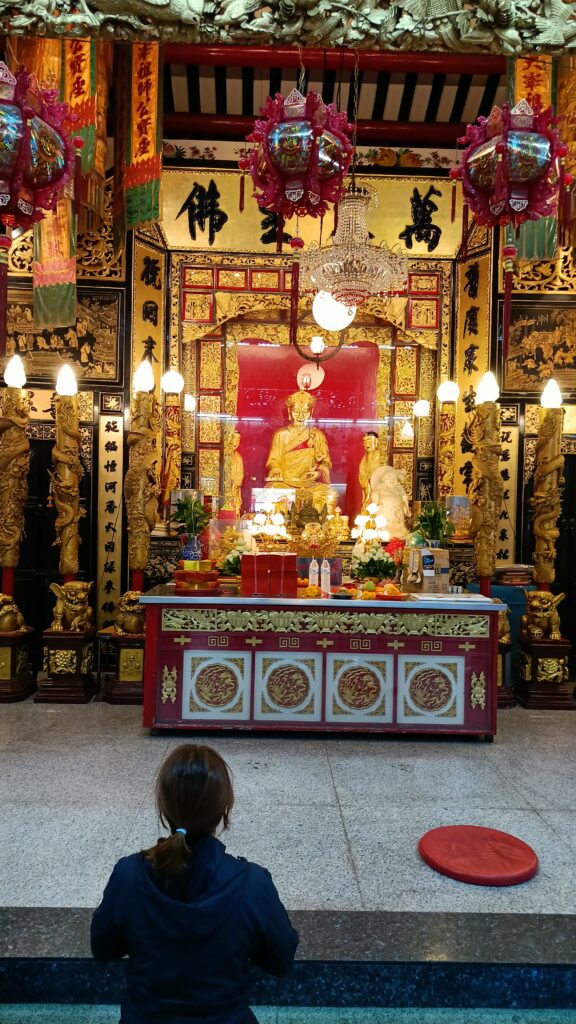The Poh Teck Tung Foundation
If you’re part of the charitable community in Ticy City, you probably know about the wonderful practice of donating to causes, especially when it comes to coffin funds at different foundations. Among the most recognized names is the Poh Teck Tung Foundation, a beloved institution that has been serving the community for over a century. It was established in 1909 and was originally known as the “Tai Hong Kong Body Collection Group.”

But who was Tai Hong Kong? Why do people hold him in such high regard, and how did he connect with this foundation? Join Nai Mu, Ticy City’s warm-hearted storyteller, as he invites you to explore these questions in “Tai Hong Kong: A Legacy of Compassion from China to Thailand.”
Coffin Donations: A Meaningful Act of Kindness
Donating coffins is seen as a significant act of kindness, thought to ease personal struggles and bring comfort in difficult times. Many, according to Nai Mu, have taken part in this noble tradition, especially while passing through Bangkok’s lively Yaowarat district. At the Poh Teck Tung Foundation in Plubplachai, this spirit of merit-making thrives, with devotees frequently honoring Tai Hong Kong Zhou Sh, the shrine’s beloved patron saint.
This year, the period from November 26 to December 1 celebrates Tai Hong Kong’s birthday—a wonderful time to stop by the shrine and pay your respects!
115 Years of Kindness in Action
The Poh Teck Tung Foundation, once known as “Hua Kiew Poh Teck Siang Tung,” has dedicated 115 years to spreading compassion and kindness. Founded in 1909 as the “Tai Hong Kong Body Collection Group,” it has grown into a vital part of Thailand’s charitable fabric.
Whether jumping into action during fires, floods, or other emergencies throughout Bangkok and beyond, the foundation’s team is always ready to lend a helping hand. Their services range from disaster relief and burying unclaimed bodies to various community support programs. You might not know, but Hua Chiew Hospital and Hua Chiew Chalermprakiet University are also key parts of this helpful mission!
Tai Hong Kong: The Kind-hearted Monk
The fascinating story of Ling Er Lim, known as Tai Hong, comes from records in Teochew, Guangdong Province, China. Born in 1582 during the Song Dynasty, he grew up in a well-off family and got an excellent education, earning the title of Jinshi (Imperial Scholar) and serving as a county magistrate. However, at 54, feeling unfulfilled, he decided to leave it all behind to follow a monastic path and took the name Tai Hong.
At the age of 81, Tai Hong set off as a wandering monk. He briefly made his home at Leng Zuo Kuo Yi Temple, working with the community to breathe new life into the neglected monastery. Later on, in the war-torn area of Hua Peng, he was moved by the sight of countless bodies left unburied—victims of conflict, famine, and illness. Driven by kindness, he began the heartfelt work of burying the deceased, feeding the hungry, and building shelters for the sick.
One of his remarkable accomplishments was the construction of a 300-wa (1,200-meter) bridge across the perilous Liang Jiang River. With the help of local villagers, he led the project to completion in just seven days, which many believed was a testament to his divine favor.
Tai Hong passed away at the age of 85, leaving a legacy rich in selflessness and compassion. Having been venerated as a saint, he became known as “Tai Hong Kong” (Venerable Grandfather Tai Hong) and was honored at what we now recognize as the Poh Teck Tung Shrine.
Tai Hong Kong’s Journey to Thailand
In 1896, a Chinese immigrant named Bei Yun brought a statue of Tai Hong to Bangkok’s Wat Liap district. During a cholera outbreak, tales of Tai Hong’s miraculous actions began to spread, attracting many worshippers. Acknowledging this growing devotion, Bei Yun moved the shrine to Plubplachai, where it became a permanent home for those seeking to make merit.
Later, Phraya Anuwat Rajaniyom (Yi Kor Hong) played a vital role in purchasing land and building a dedicated shrine, which continues to draw thousands during festive celebrations today.
Looking forward, a new Tai Hong Kong Shrine will open in Sathorn on Charoen Rat Road in early 2025. This modern sanctuary will encompass over four rai (1.6 acres) and will feature statues of Tai Hong, Guanyin, Ksitigarbha Bodhisattva, and many other beloved deities like Tai Sui, Cai Shen, and Guan Yu.
The Formation of the Poh Teck Tung Foundation
In 1909, twelve compassionate Chinese merchants in Bangkok came together to form the “Tai Hong Kong Body Collection Group.” Their mission was to provide dignified burials for unclaimed bodies, regardless of race or religion, at Wat Don Cemetery on Charoen Krung Road.
By 1912, their efforts gained royal support from King Rama VI, who provided annual funding. In 1937 the group received official recognition as the Hua Kiew Poh Teck Siang Tung Foundation, becoming Thailand’s 11th registered charity. Today, it’s lovingly known as the Poh Teck Tung Foundation—a name that embodies compassion and kindness.
Story by Nai Mu
#TicyCity #TaiHongKong #PohTeckTung #Charity #CoffinDonations #Compassion #Bangkok #GodsCity